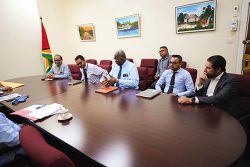The Trinidad Guardian newspaper’s editorial of 17th January this year, titled `Carnival opportunities lost’ highlighted the fact that the National Carnival Committee (NCC) had failed to grasp the opportunity to create alternative events in virtual space following the announcement by Prime Minister Keith Rowley in late September last year of the cancellation of the Caribbean’s standard bearer for the festival.
The editorial lamented that it appeared as though the NCC had “temporarily abdicated its role of managing the national festival and has gone into hibernation, squandering an opportunity to re-engineer and reimagine Carnival 2021 in the virtual space.” The writer further noted that there had been enough time to gather stakeholders to conceptualise and produce a number of events.
“The possibilities are endless — pay-per-view shows, virtual concerts, socially distanced exhibitions, and workshops. Instead, the NCC has settled for the easy option of mothballing the entire festival,” the editorial writer complained. We should take note of our fellow Caricom sister’s shortcoming in the management of arguably the most important component of its highly developed culture sector, in this virtual age.
Whilst we have the moment – yes, the time factor here is exceedingly minute – to ponder our immediate future, resting on our laurels and awaiting the arrival of ‘the oil bonanza’, which is not etched in stone, will not cut it. The pandemic may have brought some industries such as the airlines, cruise ships, hotels and auto manufacturing to their knees. Some sectors have accepted the fact that the future way of conducting business might have arrived faster than was predicted, and only those who adapt and modify their current processes will survive and thrive. Here, we should be striving to stay abreast of changes and innovations in two key areas: health care delivery and education.
The management consultant firm, McKinsey and Company, in its executive briefing on Covid-19, pointed out that the pandemic has created a significant shift in the delivery of digital health care services. It noted that in the USA, only eleven percent of the population used telehealth services in 2019, while the number climbed to forty-six percent since the pandemic arrived. In India, in early 2000, Apollo Hospitals which comprises more than 7,000 physicians and 30,000 healthcare personnel launched a digital health app, Apollo 24/7, which had enrolled four million people within six months. The screening, diagnosing and treatment of non-communicable diseases (NCDs), for example, witnessed drastic procedural changes, as in-person screening was replaced by virtual medicine. This is the type of innovation that prevents emergency rooms from becoming overcrowded and keeps people with NCDs away from hospitals during a pandemic, for instance. The overall well-being of the nation is of major consideration, but we are far away from being able to afford and keep pace with these changes.
The recent change in the delivery of education via the virtual classroom has further exposed the limitations confronted by children of lower income earners. Without access to a computer or the internet, lower income students are more likely to drop out or fail to graduate at the same time as their higher income peers. As the shift towards online and remote education becomes the new trend, how do we keep pace with new learning and teaching methods? Or do we simply rely on our previous methods?
Perhaps the time is ripe for the development of permanent national policies in the areas of healthcare delivery and education. For once, can our political leaders put aside party politics and personal agendas, and agree to the appointment of two relatively small committees, of no more than seven members each, to outline long-term plans covering twenty-five to thirty years, which will be implemented and followed by whoever holds the seat of government. The committee members, who should be apolitical, with significant experience and practice in the respective fields, will only receive stipends and the necessary travel expenses for volunteering their expertise to the future development of their nation. No doubt, many likely candidates can be found in the diaspora, but at least two members of each committee must be locally based, and actively involved in their respective field.
The initial national policy proposals and subsequent modifications would be discussed with, and reviewed by a parliamentary committee for financial and functional suitability for implementation. The committee members should meet annually in person to review progress and new developments, along with virtual quarterly and emergency meetings. Citizens can nominate committee members and volunteers will be interviewed by a committee comprising parliamentarians and civic society.
Arriving at the consensus required for formulating national policy committees will be nothing short of a demonstration in maturity. Such committees will, however, fit quite well into the ‘One Guyana’ proposal that President Irfaan Ali has been touting since he took office. Our leaders do not have all the answers and must accept that at times they have to defer to others more informed on certain matters. Do they possess the political will to put the nation first?







